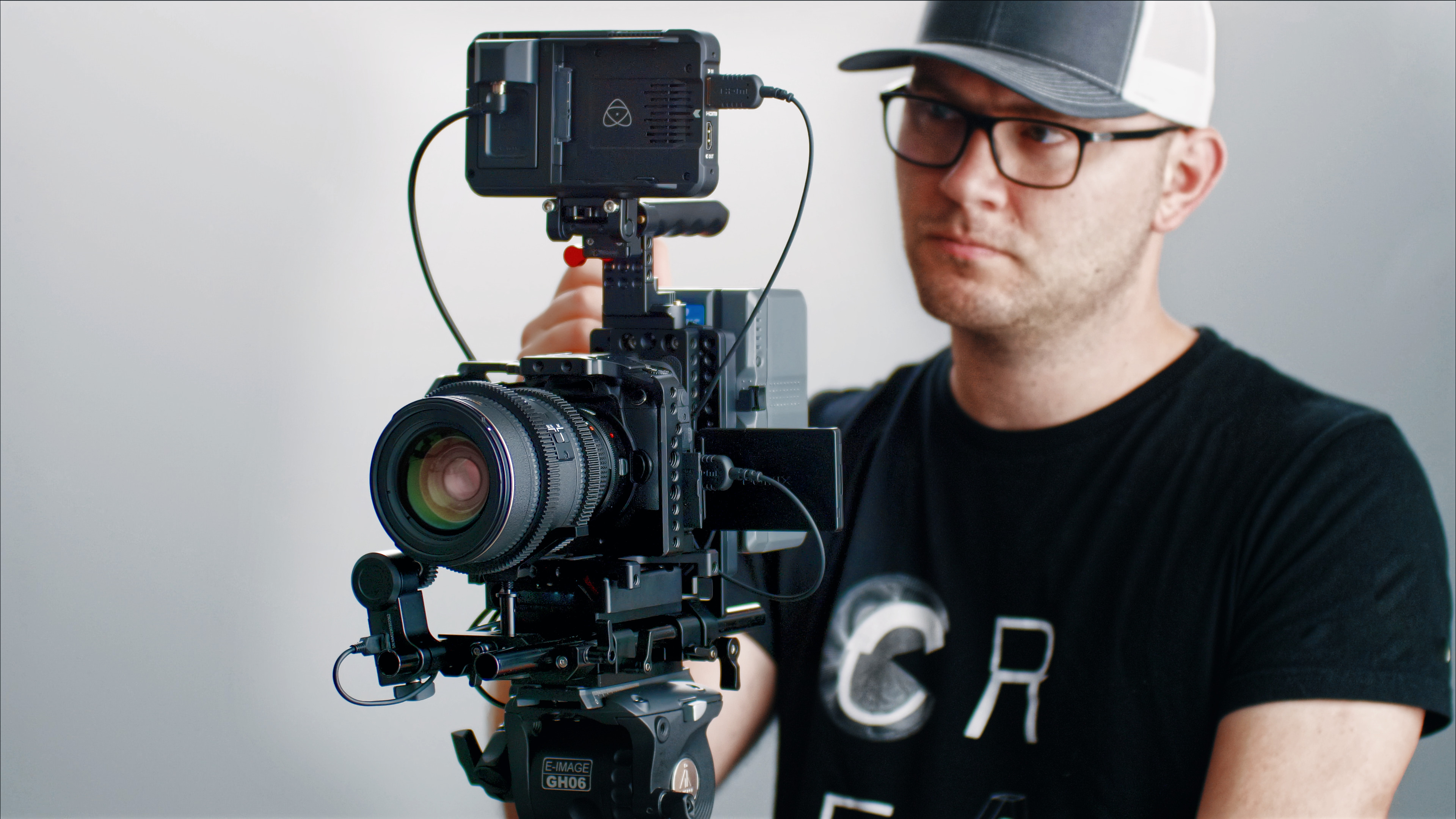

Add to the mix a healthy dose of work ethics and a keen ability to network through social media. Acquire skill, and most certainly, stay the course towards the goal. That led to more complex shows, and I gradually became a known quantity with the company and their clients.”Ī viable start-up formula for the camera position can be summarized in this way: set a goal, and immerse yourself in it - in any way possible.
Video cameraman tv#
“On occasion, a customer would call, saying they needed a TV truck and a couple of camera guys, and we got our first opportunities to shoot a few simple shows. I learned everything I could, I put myself around the equipment, and I practiced with the gear to hone my skills,” continued Zemanek. Our utility crew would set up the cameras, test them, load them in the truck and set them up at the event.”

At Versatile, I worked as a utility guy in their remote truck division, and that put me around the gear. Not a director, not a producer, but a cameraman. “I knew that I wanted to be a cameraman, from early on. “Years ago, I went to work for Versatile Video, a Bay Area video production company, just to be around the television industry in any way possible,” explained Zemanek. It may not be the one that works for you, but the messages are noteworthy. His pathway represents one of many formulas that make sense for getting a start. Danny’s background is diverse - he’s run camera for call letter stations, every type of sporting event imaginable and corporate gigs with Silicon Valley high-tech companies. I talked at length to Danny Zemanek, a long-time freelance cameraman working in the San Francisco bay area. (A news producer once remarked to his cameraman, “If it ain’t on tape, it didn’t happen.”) In a single-camera production, you are the event - whether you’re shooting video for your own script or working with a field reporter. On headsets, the cameraman has the Director in one ear, program audio in the other ear, and he’s completely aware of the crowd and the action at hand. The Director calls the shots and creates the show’s plots and sub-plots with the shots he selects. In a multi-camera show such as a baseball game or a concert, you’re part of a team that’s creating the show’s visual story line. Let’s say quite simply, it’s the life you want.Īt the camera position, you’re an integral part of the event. You’ve seen them operating studio cameras, wireless cameras and high-end digital cameras for movies. Camera crews are out on assignment with news vans, and on Hollywood sound stages shooting sitcoms and movies. You’ve seen them at concerts on their pedestals beside FOH, or scooting around on stage with a hand-held camera. You’ve seen them at sporting events, on the field or high above home plate. There are many different types of cameramen, so choose wisely. By doing so, I’ll hopefully provide that spark and guidance for anyone interested in getting involved in this wacky business - and we’ll start with the cameraman.

In the next few articles, I’ll talk to a several key video professionals, and take note of their experiences. Whether young or old, if the desire is there, getting that “foot in the door” is a major challenge, and one that’s considerably harder these days than when I grew up in the industry. In our rental and staging industry, almost every touring show has a large video element that requires skilled personnel - producers, directors, editors, crane operators, graphic designers, engineers, and most certainly - cameramen and camerawoman. Some jobs are in front of the camera (such as the reporter, newscaster, actor, actress, or program host), but most of the exciting jobs are essentially behind the camera, in the production, technical and creative domains.

I categorize all the jobs in the video industry in two easy ways. Where does one acquire the knowledge and the skill? How can you get that first big break? Certainly the colleges, universities and trade schools provide a comprehensive background, teaching a little bit of everything involving audio and video- but rarely concentrating on specific marketable skills. I’ve often wondered how someone gets their start these days, if they’re aspiring to work in the video industry.


 0 kommentar(er)
0 kommentar(er)
